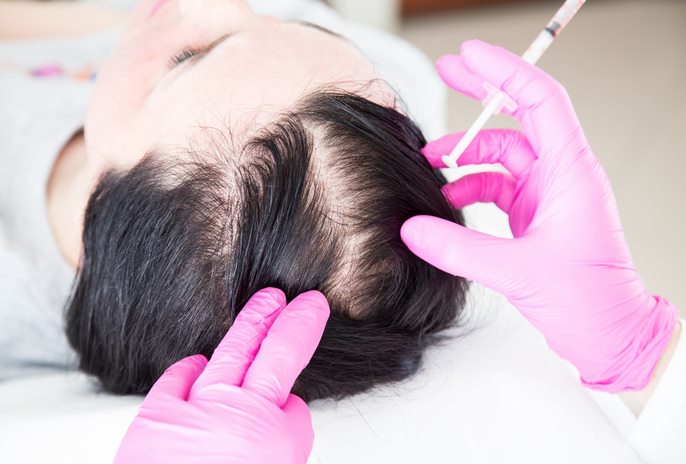Effective Treatment For Alopecia Areata
There is no everlasting treatment for alopecia areata, but there are several treatment options to stimulate hair growth and to suppress the immune system. Corticosteroid injections are the most popular treatment option for initial stages of alopecia areata. These injections suppress the reaction of the immune system in areas of hair loss. Some types of alopecia areata do not respond yo conventional treatment methods and hard to treat. Other treatments, such as oral corticosteroids, minoxidil, and immunotherapy, are also helpful for hair regrowth. The use of a particular treatment depends on several factors such as age, the extent of hair loss, and the side effects of the drugs.
Although alopecia areata do not make people feel sick and not a contagious disease, people may have emotional stress due to hair loss. In the severe hai loss, people get emotionally disturbed and need emotional treatment as well with the medicinal treatment. Some doctors give counseling to such patients who suffer from stress and provide them the opportunity to share their feeling and thoughts. There are also some natural treatment options available to treat this disease, such as acupuncture and the use of herbal supplements. Following are some of the treatment options for alopecia areata:
Corticosteroids injections:
Skin specialist doctors inject corticosteroid injections into the bald areas with tiny needles. Steroids are the most common treatment for alopecia areata. These injections do not work for all patients and usually helpful for small bald patches. Steroids suppress the activity of the immune system and let hair follicles to function correctly. There are also some side effects of this treatment. Patients can feel skin depression, discomfort, tingling sensation in the skin, soreness, inflammation, and stomach problems. These drawbacks do not last longer and improve with time. This treatment needs to repeat every 4 to 6 weeks. These are anti-inflammatory drugs and usually given in autoimmune disorders to suppress immunity. This treatment is not helpful for deVere cases and large bald patches on the skin. There is no guarantee the hair will continue to grow after the treatment.

